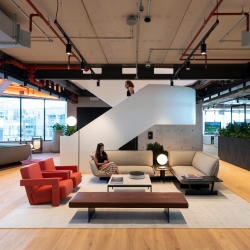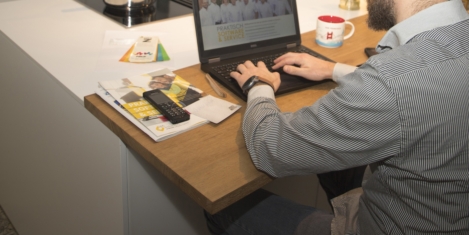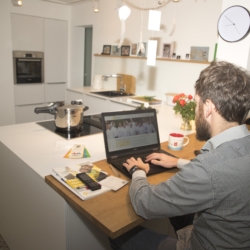To provide the best experiences, we use technologies like cookies to store and/or access device information. Consenting to these technologies will allow us to process data such as browsing behaviour or unique IDs on this site. Not consenting or withdrawing consent, may adversely affect certain features and functions.
The technical storage or access is strictly necessary for the legitimate purpose of enabling the use of a specific service explicitly requested by the subscriber or user, or for the sole purpose of carrying out the transmission of a communication over an electronic communications network.
The technical storage or access is necessary for the legitimate purpose of storing preferences that are not requested by the subscriber or user.
The technical storage or access that is used exclusively for statistical purposes.
The technical storage or access that is used exclusively for anonymous statistical purposes. Without a subpoena, voluntary compliance on the part of your Internet Service Provider, or additional records from a third party, information stored or retrieved for this purpose alone cannot usually be used to identify you.
The technical storage or access is required to create user profiles to send advertising, or to track the user on a website or across several websites for similar marketing purposes.
 BT has today announced plans to develop a brand new, multi-million pound contact centre in Dundee which will become the new home to around 1,000 employees. The new office will be at West Marketgait in the heart of the city centre, close to the waterfront and part of a £1bn regeneration area. When the building is complete, expected in late 2023, the contact centre will be one of around 30 of BT’s new future-fit offices in the UK, developed as part of its ‘Better Workplace Programme’ – the largest workplace improvement and consolidation scheme of its type ever undertaken in the UK. (more…)
BT has today announced plans to develop a brand new, multi-million pound contact centre in Dundee which will become the new home to around 1,000 employees. The new office will be at West Marketgait in the heart of the city centre, close to the waterfront and part of a £1bn regeneration area. When the building is complete, expected in late 2023, the contact centre will be one of around 30 of BT’s new future-fit offices in the UK, developed as part of its ‘Better Workplace Programme’ – the largest workplace improvement and consolidation scheme of its type ever undertaken in the UK. (more…)








 Mobile access company
Mobile access company 
 When it comes to conversations about work and workplaces, the past year has offered a fully immersive experience. Everybody now has an opinion. Inevitably some of them are better informed and more rooted in experience than others. So, after a full year of talk and as we return to some form of routine working life, the time has come to take stock. Few organisations and people will remain untouched by the sudden shift in attitudes towards working life, so we asked four workplace experts for their views on the current state of play.
When it comes to conversations about work and workplaces, the past year has offered a fully immersive experience. Everybody now has an opinion. Inevitably some of them are better informed and more rooted in experience than others. So, after a full year of talk and as we return to some form of routine working life, the time has come to take stock. Few organisations and people will remain untouched by the sudden shift in attitudes towards working life, so we asked four workplace experts for their views on the current state of play. 
 The COVID-19 pandemic has accelerated the transition away from traditional workforce models, and 56 percent of companies are expecting to shift more of their roles to contingent, project or contract work as a result, according to a new report by
The COVID-19 pandemic has accelerated the transition away from traditional workforce models, and 56 percent of companies are expecting to shift more of their roles to contingent, project or contract work as a result, according to a new report by 
 A shift to remote working in the pandemic has made starting a new job even more challenging and the Government must recognise the vital role managers have to play as it works to ensure the success of its £2.6 billion job drive.
A shift to remote working in the pandemic has made starting a new job even more challenging and the Government must recognise the vital role managers have to play as it works to ensure the success of its £2.6 billion job drive. 
 New research from
New research from 
 A new report launched by the
A new report launched by the 
 New research by
New research by 


 Has working at home during lockdown made people
Has working at home during lockdown made people 
 Apple has announced an acceleration of its US investments, with plans to make new contributions of more than $430 billion and add 20,000 new jobs across the country over the next five years. The plans include the creation of a new
Apple has announced an acceleration of its US investments, with plans to make new contributions of more than $430 billion and add 20,000 new jobs across the country over the next five years. The plans include the creation of a new 








May 20, 2021
Is the time right for office furniture as a service?
by Joanna Knight • Comment, JK, Workplace design